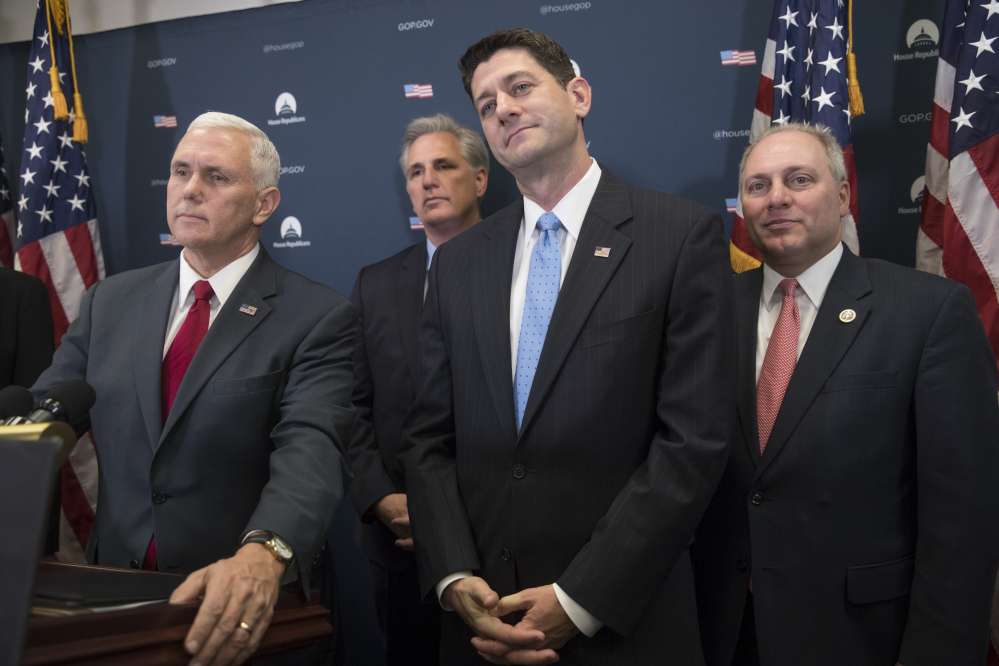WASHINGTON — Republicans are increasingly jittery over rushing to demolish much of President Obama’s health care law without having a GOP alternative that’s ready to go.
While nothing about revamping the nation’s $3 trillion-a-year health care system will be easy, Republican leaders want congressional committees to have legislation dismantling much of Obama’s overhaul ready by late January.
Crafting a GOP replacement is likely to take longer, thanks to Republican divisions and solid Democratic opposition. With 20 million Americans now covered under Obama’s law, one political nightmare for Republicans would be repealing the statute and then proving unable to pass a new version.
Sen. Bob Corker, R-Tenn., told reporters Friday that Republicans might find themselves in a “box canyon” if they erase the health care law without a substitute in hand.
One part of Obama’s law Republicans are eager to repeal is its tax increases on higher-earning people and segments of the health care industry that help finance expanded coverage. Corker said that if those taxes are voided but Republicans temporarily continue subsidies to help people buy coverage, “that means Republicans would have to vote for a tax increase” to pay for them – usually a nonstarter for the GOP.
Corker said he supported repealing and replacing simultaneously, a sequence that Trump has said he favors.
“That to me is the prudent course of action.”
Sen. Ron Johnson, R-Wis., said Friday that if he had his way, “I would start bringing up those elements that start repairing the damage and I would start taking votes on those right now.”
Johnson also expressed concern that Democratic opposition could scuttle the effort. Senate Minority Leader Chuck Schumer, D-N.Y., said this week that if Republicans void Obama’s bill, Democrats won’t help them pass alternative legislation.
While Republicans will likely just need a simple Senate majority to approve their repeal bill, for procedural reasons later replacement legislation will probably need 60 votes in a chamber the GOP controls by just 52-48.
That means a need for at least eight Democratic votes, though there will be pressure on 10 facing re-election next year from states Trump won in November.
Send questions/comments to the editors.


